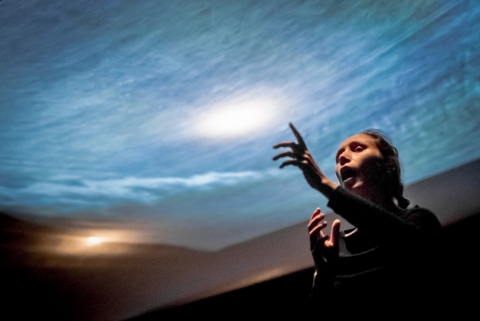Performances
Anhelli. The Calling / Breslau 1945 in Wrocław

8-10 October 2015
Anhelli. The Calling
{Thu-Sat}, 7:00 pm
Dworzec Świebodzki, 20b Orląt Lwowskich Square, 53-605 Wrocław
Anhelli. The Calling
Breslau 1945
Anhelli. The Calling / Breslau 1945
Three presentations of the show as part of The Season of Masters project realised by the Grotowski Institute.
Exiles came to the land of Siberia, and having chosen a broad site they built a house… – are the first words of a poem by Juliusz Słowacki [tłum. Dorothea Prall Radin, 1930].
The performance, which is a tribute to the author of Anhelli and his journey from Naples to the Holly Land via Alexandria, Cairo and Damascus, will be dedicated to the city of Wroclaw and all those, who came here just after World War II. Like in October 2011 in ruins of Belchite near Zaragoza, in the city that still bears traces of the Spanish Civil War (1936-1939), also now Anhelli will resound in a very particular context. It will be presented at Dworzec Swiebodzki [Swiebodzki railway station], where 70 years ago people coming from the eastern lands, forced to leave their homes, got out of trains and settled in the foreign, dramatically destroyed city, which they have made their new home.
.
Tickets: 20 PLN
Reservations and selling from the 1st September 2015: sekretariat@grotowski-institute.art.pl, ph. 71 34 45 320
Please note that all booked tickets must be collected from the office of the Grotowski Institute (Rynek-Ratusz 27) no later than one day before the chosen performance.
Anhelli. The Calling, created during Teatr ZAR’s travels in Europe, is build out of fragments of Corsican, Greek and Sardinian liturgies, as well as hymns from Russian Orthodox Church. However, the strongest of the consonances that build the piece is silence, which we have intergrated into the sound of the ruins of San Augustino church in Belchite despite its destruction and the history. We will come to the Świebodzki Station convinced that theatre – like a column of sounds – will allow us to create an axis between the past and the present. [Jarosław Fret]


